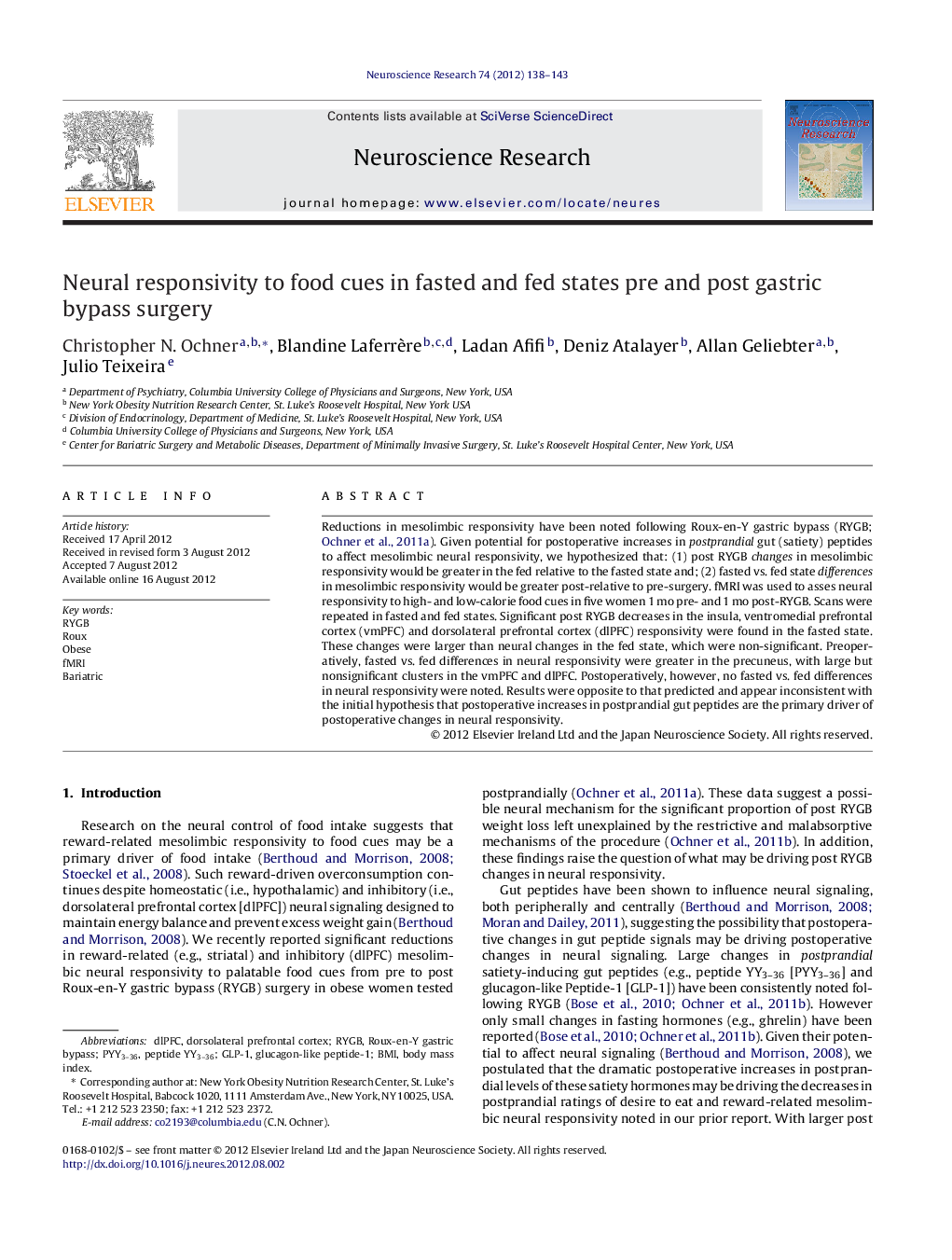| Article ID | Journal | Published Year | Pages | File Type |
|---|---|---|---|---|
| 4351632 | Neuroscience Research | 2012 | 6 Pages |
Reductions in mesolimbic responsivity have been noted following Roux-en-Y gastric bypass (RYGB; Ochner et al., 2011a). Given potential for postoperative increases in postprandial gut (satiety) peptides to affect mesolimbic neural responsivity, we hypothesized that: (1) post RYGB changes in mesolimbic responsivity would be greater in the fed relative to the fasted state and; (2) fasted vs. fed state differences in mesolimbic responsivity would be greater post-relative to pre-surgery. fMRI was used to asses neural responsivity to high- and low-calorie food cues in five women 1 mo pre- and 1 mo post-RYGB. Scans were repeated in fasted and fed states. Significant post RYGB decreases in the insula, ventromedial prefrontal cortex (vmPFC) and dorsolateral prefrontal cortex (dlPFC) responsivity were found in the fasted state. These changes were larger than neural changes in the fed state, which were non-significant. Preoperatively, fasted vs. fed differences in neural responsivity were greater in the precuneus, with large but nonsignificant clusters in the vmPFC and dlPFC. Postoperatively, however, no fasted vs. fed differences in neural responsivity were noted. Results were opposite to that predicted and appear inconsistent with the initial hypothesis that postoperative increases in postprandial gut peptides are the primary driver of postoperative changes in neural responsivity.
► We test fasted vs. fed state differences in neural responsivity to food cues. ► We test post bariatric surgery change in neural responses in fasted and fed states. ► Postoperative decreases in gustatory/reward responsivity in the fasted state. ► Surprising results inconsistent with popular notion.
